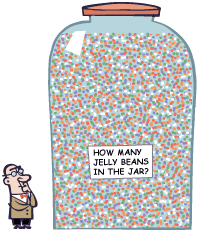2012
M-m-m-m-m Nitrogen

Where can you buy a bag of nitrogen? At the nearest convenience store, bodega, corner market, whatever. But don’t look in the gaseous substances aisle, head for the snack foods and pick up a bag of chips which are inflated with nitrogen. Two reasons. Chips spoil pretty quickly when exposed to oxygen. Which you’d know if you ever ate from an opened week-old bag of chips. The poofiness keeps the chips inside from getting crushed. It’s like an automobile air-bag for chips. Car air-bags also use nitrogen, but for reasons other than freshness.
Pringles come in tubes for protection instead of air-bags. Which they can because they’re stackable. Pringles cans don’t use nitrogen because the chips pack so tightly there’s very little oxygen in there. While you could also stack flat potato chips, Pringles are all made with a curvey, horse saddle shape called a hyperbolic paraboloid. Besides looking nice and more like a real potato chip, the curve gives the chip extra rigidity for dipping in dip.
How the hyperbolic paraboloid adds rigidity would take an engineer to explain. You can demonstrate that it does easily enough. Take a sheet of paper and hold it between your thumb and one finger. It droops. Hold it between your thumb and two fingers, pressing with the thumb so the paper curves and it will extend out. It’s the same piece of paper, only the shape makes it stiffer.

Tennis balls also come in a tube like a Pringles can. Though the tennis ball can came first so it’s the other way around. Why in a can? Maybe it keeps the balls fresh and bouncy. I really don’t know. Balls are curved in every direction imaginable. Which might make them the ultimate in curvey rigidity. They can roll in any direction. There’s no right side up or upside down to a ball. They’re a marvel. Then again, it’s very hard to stack tennis balls like Pringles. Which might explain the can.
Filed 12/19/12
Only Economists and Politicians Don’t Know War and Disasters Don’t Boost the Economy

There is a notion floating around that a natural disaster boosts gross domestic product (GDP). Just think of all that economic activity it takes to rebuild. Surely that’s good for all the workers and businesses hired in the effort, right? Let’s think about it.
No money was created by the disaster. Money spent replacing a destroyed building is money not available for something else. The rebuilding mostly diverts money from one thing to another. In which respect it’s a wash as the money would have added to GDP in some other way. Unless you think that money would have gone forever unspent. Hardly likely.
Except it’s not a wash, it’s a loss. Had there been no disaster you could have had a building and built a second building, a net two buildings. With the disaster you lose one building and build one to replace it, a net one building. How is it you can invest the same amount in both cases, yet be ahead in one and behind in the other? Why is this not reflected in GDP?
GDP = Consumption + Investment + Government + Exports - Imports
Investments are things like building infrastructure, capital equipment, buildings and the like. This adds to GDP. Seems to me the reverse would also be true, destroying infrastructure, capital equipment, buildings and the like subtracts from GDP. What Hurricane Sandy destroyed should reduce GDP by that amount. It’s simple math.
Therein lies one of the many flaws of GDP as a metric. They only add to investment, it’s always positive. They never subtract lost investment. So if disasters were destroying infrastructure faster than you replace it, you could be increasing your GDP all the way to the poor house.
What is GDP telling us? What good is it? Mightn’t it be better to calculate net domestic product? What good are higher sales if the business operates at a loss? Would it be good for an entire economy to do the same thing? This reminds me of the old line, “The operation was a success, but the patient died.”
Filed 12/15/12
Quick Quips from P.J. O’Rourke

And now a few sarcastic words from my favorite curmudgeon not named H.L. Mencken.
“When buying and selling are controlled by legislation, the first things to be bought and sold are legislators.”
“The Democrats are the party that says government will make you smarter, taller, richer, and remove the crabgrass on your lawn… The Republicans are the party that says government doesn’t work and then they get elected and prove it.”
“If you are young and you drink a great deal it will spoil your health, slow your mind, make you fat — in other words, turn you into an adult.”
“The question is not how does government work, but how to make it stop.”
All courtesy of the poison pen of P.J. O’Rourke. Though he probably writes on a computer.
Filed 11/19/12
Subdivided Subcontinent

To some Britain means England. Don’t say that to a Scot nationalist. To them the English are foreigners. Just mention King Edward I and prepare for an earful. Old Longshanks wasn’t called the “Hammer of the Scots” for nothing. Then again, Scots divide themselves between highlanders and lowlanders. Highland Scots further subdivide themselves into clans. You’ll find this same sort of thing all over Europe. All the same, they have nothing in this regard compared to India.
Due to its caste system Indian demographics are something else again. By discouraging intermarriage, caste has subdivided Indians into multiple what you might call micro-ethnicities. A leading population geneticist, L.L. Cavalli-Sforza, estimates there are 43,000 endogamous communities in India. That’s a whole lot of little villages where everyone is related to everyone else in the village, and unrelated to outsiders.
As you can imagine, this made for a pretty closed community. As a result life for the rural Indian villager has been isolated and limited for no little while. In 1952, the fifth anniversary of independence, the government initiated a survey to discern whether the average villager had learned yet the British had left India. The study was abandoned when early results indicated most villagers didn’t know the British had ever arrived.
Filed 11/13/12
The Casual Sportsman
When Four Outs Beat Three

First, a little personal celebration. Tigers sweep Yankees to make the World Series. Yippee! Not that most folks besides Tiger fans care all that much. And likely as not wouldn’t think much of what I have to say about it. So we’ll let it go.
Now down to the business at hand, explaining the intro. When does four outs beat three? How do you get four outs? What’s the point?
Here’s the situation: men on first and third, one out. Batter sends a looping liner to right. Looks like it will fall for a hit, the runners go. The right fielder makes a shoestring catch for the second out. The right fielder throws to first base doubling up the runner, out number three. Meanwhile, the runner on third, who didn’t tag up after the catch, crossed the plate before the third out was made at first. The question, does the run count?
Even though he never tagged up after the catch, the run counts if the runner crossed the plate before the third out was made doubling up the runner from first. To negate the run, the defense must also make an appeal play to third base, doubling up the runner there. This would be a fourth out. Though if they did that, it would cancel the third out at first base, making the fourth out the third out and the third out a non-out.
Perhaps I didn’t explain that very clearly, but that’s the gist of what they call “the fourth out rule.” Though technically it’s only three outs. Not something you see very often, but it does happen. Why this “illegal” run is allowed is a quirk of the rulebook. Baseball has lots of special rules to cover special situations. If you don’t know the rules you can get mighty confused when odd situations pop up.
Here’s an example of such confusion popping up on a pop-up called by two different broadcasts of a strange play in a game between the Marlins and the Dodgers. The Marlins announcers go through all sorts of gyrations trying to explain the play. Meanwhile the Dodger announcer, Vince Scully, makes the correct call right off the bat. Though Mr. Scully does muddy the waters when he starts going on about the infield fly rule. He should have followed his own advice and “Forget the play” because once runner interference is called, nothing else matters. The runner at first is out, the other runner remains at second, and the batter keeps on batting as if the play never happened.
Filed 10/19/12
Latin Greek You’ve Likely Seen

Lorem ipsum dolor sit amet, consectetur, adipisci velit. Perhaps you’ve run across that sequence before. It’s a bit of standard placeholder text used by graphic designers to mock up a page when a manuscript is not available. Oddly enough, they call this greek text even though it appears to be Latin using Roman letterforms. The curious might wonder, is it real Latin or gibberish, and what might it mean.
It is real Latin. Mostly. It’s Latin with bits missing here and there. It comes from Cicero’s De finibus bonorum et malorum, a treatise on the theory of ethics from 45 BC. The original goes as follows, Neque porro quisquam est qui dolorem ipsum quia dolor sit amet, consectetur, adipisci velit… Which translates as, “There is no one who loves pain itself, who seeks after it and wants to have it, simply because it is pain…”
How and where this bit of text being used as a placeholder started is unclear. There’s some indication it traces back to the early days of movable type when most scholarly books where in Latin. It’s lasting power is easily understood. If you need greek copy it’s easier to simply copy than to write or find something else. As they say, why re-invent the wheel.
On a related note, you may have run across this sentence which sounds like something from a children’s book, “The quick brown fox jumps over the lazy dog.” This is an example of a pangram, a phrase containing every letter of the alphabet. Typographers often use it to show what every letterform of a particular typeface looks like in text rather than as an alphabetical table.
Filed 10/4/12
Loophole

You likely know what a legal loophole is. It’s pretty much a way to evade a law legally. Slip through the cracks, as it were. But why is this called a loophole? Where did that come from?
If you are familiar with military history or castles you might know what else a loophole is. It’s a small opening in a castle wall, fortification, or bulwark, usually a vertical slit or cross-shaped, from which a defending archer or crossbowman can shoot at attackers.
A loophole is a small opening in an otherwise impregnable wall through which, if you could squeeze through, you can defeat the wall. That’s where the term legal loophole comes from. It’s a simile. Or is it an allusion? Whatever it is it’s a gap in the defense. A chink in the armor. (A phrase harkening back to days of loopholes, appropriately enough.)
Now then, actual castle loopholes were much too small for a person to squeeze through. You’d have to be pretty slippery, able to contort yourself to extremes to weasel your way through one. Sounds like a lawyer to me.
Filed 10/2/12
How Big is Too Big?

Is it possible to grasp really big numbers? I mean numbers like a billion or a trillion. As analogies they sometimes talk about stacking things to the moon or laying them end to end around the world to visualize really big numbers. But does that actually help? I mean, do we even have a good grasp of the size of the Earth or how far away the moon is? Maybe, but I rather think not that much.
Let’s take another example, one thousand seconds is just over 16 and a half minutes. Without doing any calculations, just guessing with a gut reaction, how long is a million seconds, a billion seconds, and a trillion seconds?
One Million seconds is 12 days. One Billion seconds is nearly 32 years. One Trillion seconds is 31,688 years.
Clearly, a trillion is a lot. A great big, whole lot. A billion is 32 years, half a lifetime. We can perhaps relate to this. But how do we relate to 31,688 years? Which is not to say we’re stupid, just that we don’t deal with such amounts on a daily basis. Sometimes a number so big it’s just a word to us.
Filed 8/27/12
How Cold is Space?

Thing is, space is not very cold at all. It’s not very hot or lukewarm, either. Temperature is the measure of matter’s kinetic energy. Where there’s no matter, there’s nothing there to have a lot or a little kinetic energy, in other words to have a temperature. Meaning space, a vacuum, has no temperature at all.
Think of it like momentum, a ball flying through the air. You can speed up or slow down the ball, change its momentum. You can’t speed up or slow down a vacuum because there’s nothing there to speed up or slow down. Measuring the speed of nothing is meaningless. It has no speed, color, weight, smell, taste or anything else. Being nothing, it has nothing. In the same way, it has no temperature either.
One of the greatest dangers to space-walking astronauts is not freezing in their suits, but dissipating excess body heat. The reason being in a vacuum the free exchange of temperature is nearly impossible. There’s no convection or conduction in a vacuum. On NASA’s Staying Cool in Space web page it states the “ISS (International Space Station) needs huge radiators to get rid of its excess heat.” The ISS requires 14 honeycombed ammonia-tubing-filled aluminum panels totaling 1680 square feet to stay cool.
On the other hand, some object in deep space away from a source of heat can be very cold indeed. All the same, the space around it will still have no temperature at all.
Filed 7/31/12
Get ‘em While They’re Hot

The way to tell an optimist from a pessimist is the way they see a half glass of water. Below is an amusing bit from Zero Hedge on the two types, sans cliché.
Recently two noted Spanish economists were interviewed. One was always an optimist and one was always a pessimist. The optimist droned on and on about how bad things were in Spain, the dire situation with the regional debt, the huge problems overtaking the Spanish banks and the imminent collapse of the Spanish economy. In the end he said that the situation was so bad that the Spanish people were going to have to eat manure. The pessimist was shocked by the comments of his colleague who had never heard him speak in such a manner. When it was the pessimist’s turn to speak he said that he agreed with the optimist with one exception; the manure would soon run out.
Filed 7/19/12
How to Not Save Water

“Add three seconds of water and stir.” That’s a strange recipe direction. “Fill a large pot with 20 seconds of water and bring to a boil.” That’s pretty odd, too. Would you ever calculate the amount of water to cook with by how long it takes to come out of the tap rather than volume?
It seems somebody thinks we do. Why else would the gas company send folks door-to-door offering to install a device that restricts water flow from the faucets promising it will save 20% on your hot water bill? Happened to me just the other day. I declined the offer.
I fill my pots with cold water. It’s more efficient to heat the water on the burner than to heat it partly in the hot water tank first then the rest of the way on the burner. So the device wouldn’t make a difference there. Just make filling pots take longer.
When washing dishes I fill the sink with enough hot water to do the job. I wouldn’t fill it less if it took longer to fill. No savings there. I rinse the dishes in tepid water with that sprayer thingamabob. I don’t run the water full blast anyway because it splashes too much. No savings there.
Maybe I’m crazy, but the idea that a flow-restricting device at the tap is going to save me 20% on hot water seems unlikely. Especially considering most of my hot water useage is laundry and showers. Anyway, my faucets already have a device which I use to reduce water flow. It’s called a valve, and I know how to use it.
Unlike most houses mine has a device that saves water, though not hot water. I have a urinal. Easy to use and a lot less messy than a toilet. Of course I have a toilet, too, for number two.
Filed 5/14/12
Welcome to the S___burbs

Your usual big cities have a variety of neighborhoods. For instance, there’s downtown, uptown, midtown, the warehouse district, the docks, and so on. Suburbs are like that, they vary. Not all suburbs are like where the Clampetts live, or where the Bundys live. Some might have a cement pond and others might have a cement lawn. Here is the rundown on suburb sub-categories and how to identify them.
SHRUB-urb Older middle-class community with well-kept lawns and gardens; big, mature trees; lots of hedges and shrubs. What to look for: Privacy fences, ground cover and folks doing gardening.
SHRUG-burb Nondescript, middle-class, comfortable suburb. Can you say cliché? What to look for: Garden gnomes, sports team flags and satellite dishes.
SCRUB-urb Older area with not-so-well-kept yards full of scrub and dying trees. Often as not a shruburb gone to seed. What to look for: Broken pavement, aluminum siding and wildflowers, a.k.a. weeds.
SNUG-burb Town with recently built tracts, often condos and gated communities. What to look for: McMansions and brick walls.
SLUG-burb Slightly run down bedroom community. This was a brand spanking new subdivision in the 50s, only now it’s 2012. What to look for: Strange home “improvements” and kids riding bikes.
‘SUP-burb Gentrified older area with caché. What to look for: Volvos, hipsters, rainbow flags and adults riding bikes.
SMUG-burb Up-scale suburb of big houses and big lawns. Can you say hoity-toity? What to look for: Topiary and landscaping crews.
SNUB-urb Town so up-scale the denizens look down their noses at the smugburbs. Posh with a capital $. What to look for: Golf courses and private police force.
STUB-urb Swath of unfinished homes where the builders ran out of money and buyers when the housing bubble burst. Basically a just built ghost town. What to look for: Construction sites without construction crews.
SPUD-burb A suburban tract in the middle of farm country. What to look for: Deer, both real and painted cement.
SLUM-burb I think the name tells you everything you need to know. What to look for: Graffiti and security grates on doors and windows.
SHLUB-urb Trailer park. What to look for: Houses with wheels and pickup trucks without wheels.
Perhaps you live in one of these. Though it goes by another name: Something Park, Whatever Heights, Whatnot Woods, or the like. Call it what you will, it’s the burbs of some sort or other. What exactly that means depends on the unlisted prefix. At least, according to this.
Filed 5/13/12
“I’m Gonna Eat Some Worms”

Some things sound better left untranslated. That really goes for food.
Italian pasta names in English
cannelloni – little tubes
fettuccine – little ribbons
linguine – little tongues
manicotti – pipes
mostaccioli – little mustaches
ravioli – little turnips
rigatoni – little stripes
spaghetti – strings
tortellini – little fritters
vermicelli – little worms
Be honest, do you really want to dig into a heaping plateful of hot strings and meatballs? Or chow down on a steaming serving of little tongues in Alfred’s sauce? Marinara sauce is mariner’s sauce in Italian. Other words for mariner are sailor and seaman. Anyone for some little worms in seaman sauce? Yummy.
Yeah, some things are better left in Italian.
Filed 4/13/12
How Many Apostrophes Can One Contraction Have?

As in the heading above, English speakers use contractions quite a bit. Except for Data on Star Trek, TNG, but who cares. Anyway, contractions are common and proper usage listed in your standard dictionary. Sometimes you have a choice. For instance, for it is not you can use it’s not or it isn’t. But you can’t double it up and go with it’sn’t.
However there are cases where you can have a double contraction. Take this one I ran across reading Agatha Christie, could not have was contracted to couldn’t’ve. Perhaps you wouldn’t’ve thought it was right, but there it was in black and white.
Which has me thinking, could you take that one step further and have a triple contraction? I mean, can I would not have be contracted to I’dn’t’ve? Well, I’ve never seen that. I would not have thought it proper usage. Or is that I’dn’t’ve thought it proper usage?
That’s it. It is what it is. Which can be, it’s what it is, but not it’s what it’s. Contractions don’t always work.
Filed 3/15/12
Welcome to The Club

Ten Sure Signs You’re Not in the 1%
- You know the price of hamburger
- You own clothing made by Carhart
- The only butlers you’ve ever seen were on tv or in films
- Hand-made means you made it
- Scull and Bones to you means a pirate flag
- You’re not in your congressman’s speed dial
- Your bank account totals have no commas
- You pay taxes
- Everything you own can fit in your car
- Everything you own MUST fit in your car because you’re living in it
Filed 3/10/12
The Worst Bargain Ever

I got a puzzle-a-day calendar for Christmas. Here’s the puzzle for February 2nd, Groundhog Day, though it has nothing to do with groundhogs:
“Andy flushes the toilet 36 times a day. Each flush uses 2 gallons of water at a cost of 10 cents per gallon. How much do Andy’s flushes cost per week?”
The answer is pretty simple math. Andy spends $50.40 a week flushing his toilet. Though the better question is why is Andy flushing his toilet so much? Why is Andy’s toilet water so expensive?
Maybe it’s just me, but using the toilet 36 times a day seems a little excessive. It means he’s relieving himself every 45 minutes all day and night. I think Andy should see a doctor.
At $50.40 a week Andy is spending over $200 a month flushing his toilet. Where does Andy live where water is so expensive? I don’t pay close to ten cents a gallon for water, closer to one cent per gallon.
Could be worse. Andy might be using bottled water. Is there anything more overpriced? I mean, a 16 oz. bottle for a dollar means paying eight dollars a gallon. That’s twice the price of gas. For water. Which I can get from the tap for a penny a gallon. Bottled water is 800 times more expensive. What a bargain.
Filed 2/3/12
Way Beyond ESP

Top Ten Pretty Much Worthless Paranormal Powers:
Rubberglubility: Ability to have insults bounce of you and stick to the insulter.
Oblivoyance: Ability to have sounds go in one ear and out the other.
Revoyance: Ability to bounce ideas off people.
Televoyance: Ability to project your thoughts into inanimate objects. For thinking inside or outside the box.
Unvoyance: Ability to know what people are not thinking.
Nix-ray vision: Ability to see the invisible. When used clear things are opaque. Which, unfortunately, includes the air.
Chronosis: Ability to speed or slow time and yourself at the same rate. Which makes no difference to anyone else, or yourself for that matter.
Circularnation: Ability to die and come back as yourself and do it all over again exactly the same way, though you never realize it.
Paralevitation: Ability to levitate in weightless environments.
Gullibility: Ability to believe the unbelievable.
And five sensory perceptions that aren’t so worthless: Ability to smell a rat, taste success, feel good, hear opportunity knocking, and see the truth.
Filed 1/24/12
Truth in Humor

“Doctor, it hurts when I do this.”
“Don’t do that.”
An old gag from Henny Youngman. But true all the same. I mean, would you stick your hand in the fire if it didn’t hurt? The problem of sticking your hand in the fire is not the pain, but burning your hand to a crisp. Pain is Mother Nature’s corporal punishment for doing stupid things.
Now this may seem like belaboring the obvious, but the same sort-of idea applies to all sorts of things. Better to have a warning signal that something is wrong than letting things fail catastrophically. That’s what the idiot lights on the dashboard are for, right? Yet people often tend to ignore warning signs. Or cover them up. Like a bit of black tape over the check engine light. That’s like painkillers for cars. Idiots.
There might be some kind of lesson in all this, but it eludes me. Like looking for a hidden meaning that just isn’t there. Which leads to my segue, as contrived as it might be, to a quote from Sigmund Freud about dream symbolism.
“Sometimes a cigar is just a cigar.”
Though that reminds me of another line about cigars from the final episode of Cheers, “There’s nothing like a good cigar. And this is nothing like a good cigar.” So everywhere it says cigar you can put in posting.
Filed 1/20/12